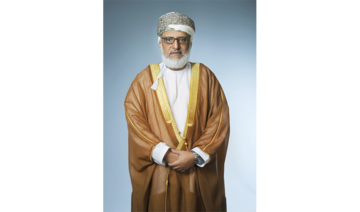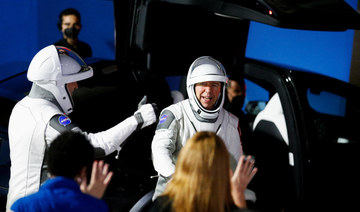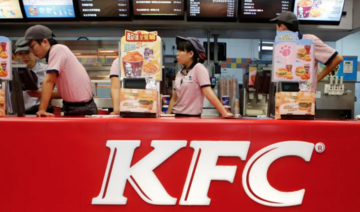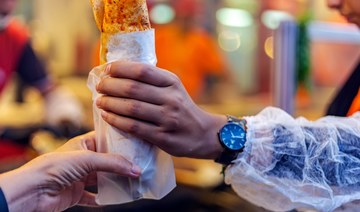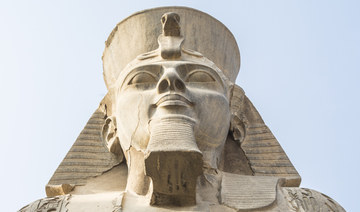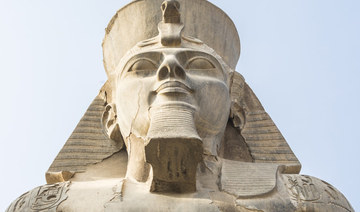DALLAS: In a scenario playing out in more and more classrooms around the world, a Dallas teenager recently asked her classmate if anything was wrong, noting that she hadn’t been acting like herself. The brusque reply: “Just leave me alone.”
The ninth-graders at the Uplift Hampton Preparatory school were role-playing as part of a program that aims to teach teens how to spot the signs of depression in themselves and others. Suicide is the second leading cause of death among Americans ages 10 to 18, according to government health statistics, and experts hope the lessons will get help to depressed teens more quickly.
“It’s kind of like ‘Mental Health 101.’ So they talk about depression and anxiety and just common mental health issues, and then I think the most important thing is they talk about what to do if you feel that way,” said Tony Walker, senior director of student support services at Uplift Education, which offers the program to all ninth-graders at its network of Dallas-area public charter schools, including Uplift Hampton.
The University of Texas Southwestern Medical Center is administering the program, which is called Youth Aware of Mental health, or YAM, and was developed by researchers at Karolinska Institute in Stockholm and Columbia University in New York.
UT Southwestern researcher Marshall Motsenbocker, who led the program’s five 45-minute sessions at Uplift Hampton, said role-playing helps teens talk through difficult issues. When the two girls finished their recent scene, he asked the class what signs of depression they recognized and what might be causing it. He said teens are sometimes too quick to act, and these discussions help them pause to think about what might have motivated someone to behave a certain way.
Destinie Medina, who participated in the sessions at Uplift Hampton, said it’s important to know how to help someone who has depression or suicidal thoughts. She said she also learned “what might cause depression, like what’s the difference between depression and sadness.”
Classmate Jose Perales said he learned that sometimes helping means “you just have to listen to what they have to say and how they feel.”
Research on the program has shown encouraging results. A study published in the medical journal Lancet in 2015 found that it reduced the number of suicide attempts and severe suicidal thoughts of those who went through it.
Interest in the program has increased since then, with some schools in Sweden, Australia, India, England and the US now offering it, said Camilla Wasserman, a Karolinska Institute researcher and one of the program’s creators. She said one of its strengths is that it encourages discussion.
“We don’t really believe in right or wrong answers and we explore all types of situations,” Wasserman said.
This is the third year UT Southwestern has offered the program. It’s reached more than 18,000 students in that time and is currently in more than 30 Dallas-area schools.
Dr. Madhukar Trivedi, who oversees the program and conducts research on depression at the university, said assessments of students before and after completing the program shows they improve their knowledge of what to do when someone needs help and that their own symptoms of depression and anxiety decrease.
Trivedi said that to allay any concerns that parents might have, including the “unfortunate misperception” that talking to teens about depression might make them depressed, parents are invited to an informational session.
One area school district turned to the program two years ago after a string of suicides.
“Our counselors have reported that they see a lot more students who come in concerned about their own health or someone else as a result of this program,” said Jana Hancock, director of guidance and family education services for the Plano Independent School District. She noted that the program is designed for everyone — not just those who might be experiencing issues.
Youth Aware of Mental health is just one of the programs used to teach teens about mental health. The National Alliance on Mental Illness created a 50-minute program called Ending the Silence that teaches students the warning signs of mental health problems. It has reached almost 450,000 kids in 41 states since the organization started offering it nationally in 2014, said Jennifer Rothman, the group’s senior manager for youth and young adult initiatives.
New York and Virginia, meanwhile, recently passed laws requiring such lessons.
“It was an idea, frankly, whose time had come,” said Glenn Liebman, CEO of the Mental Health Association in New York State, Inc., a mental health advocacy group that spent several years pushing for the legislation before it passed.
Depression 101: Dallas schoolkids learn about mental health
Depression 101: Dallas schoolkids learn about mental health
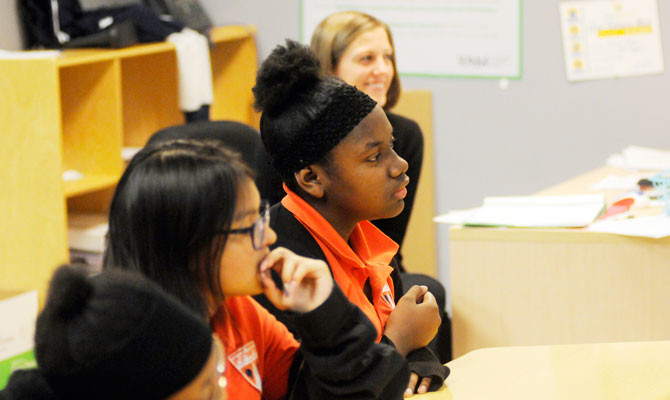
- Youth Aware of Mental health is just one of the programs used to teach teens about mental health
China’s Shenzhou-18 mission docks with space station

- The astronauts took off from the Jiuquan Satellite Launch Center in China’s northwest at 8:59 p.m. local time Thursday
- The astronauts will stay at the Tiangong space station for six months, carrying out experiments
JIUQUAN, China: A spaceship carrying three astronauts from China’s Shenzhou-18 mission safely docked at Tiangong space station Friday, state-run media reported, the latest step in Beijing’s space program that aims to send astronauts to the Moon by 2030.
The crew took off in a capsule atop a Long March-2F rocket from the Jiuquan Satellite Launch Center in China’s northwest at 8:59 p.m. local time 1259 GMT) Thursday.
By early Friday the spacecraft had “successfully docked” with the space station, state-run news agency Xinhua reported, citing the China Manned Space Agency.
The mission is led by Ye Guangfu, a fighter pilot and astronaut who was previously part of the Shenzhou-13 crew in 2021.
He is joined by astronauts Li Cong and Li Guangsu, who are heading into space for the first time.

Onlookers cheered as the rocket blasted off into the night sky, an AFP journalist at the scene said.
Xinhua said the launch had been declared a “complete success.”
The astronauts will stay at the Tiangong space station for six months.
There they plan to carry out experiments “in the fields of basic physics in microgravity, space material science, space life science, space medicine and space technology,” the China Manned Space Agency has said.
They will also try and create an aquarium onboard and seek to raise fish in zero gravity, according to Xinhua.
“Not only will the taikonauts find joy in the space ‘aquarium,’ but it may also pave the way for their future counterparts to enjoy nutritious fish from their own in-orbit harvests,” it added.

They will also conduct experiments on “fruit flies and mice,” a researcher quoted by the agency said.
The new crew will replace the Shenzhou-17 team, who were sent to the station in October.
Plans for China’s “space dream” have been put into overdrive under President Xi Jinping.
The world’s second-largest economy has pumped billions of dollars into its military-run space program in an effort to catch up with the United States and Russia.
Beijing also aims to send a crewed mission to the Moon by 2030, and plans to build a base on the lunar surface.
China has been effectively excluded from the International Space Station since 2011, when the United States banned NASA from engaging with the country — pushing Beijing to develop its own orbital outpost.
That station is the Tiangong, which means “heavenly palace” — the crown jewel of a space program that has landed robotic rovers on Mars and the Moon, and made China the third country to independently put humans in orbit.
It is constantly crewed by rotating teams of three astronauts, with construction completed in 2022.
The Tiangong is expected to remain in low Earth orbit at between 400 and 450 kilometers (250 and 280 miles) above the planet for at least 10 years.
Algeria’s first KFC restaurant reopens without logo following Gaza protests
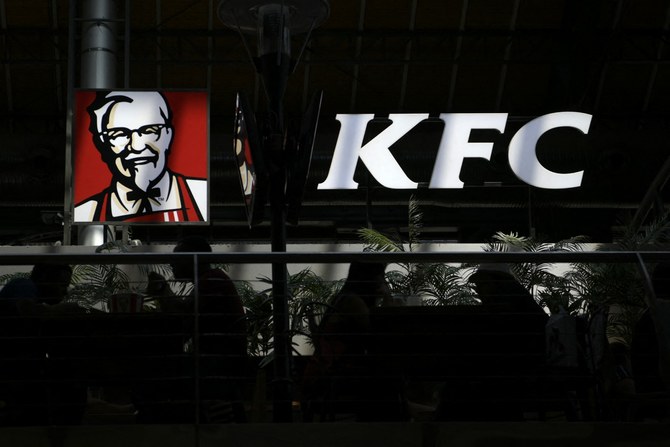
- Protesters gathered outside outlet last week in solidarity with Palestinians
- KFC parent company Yum! Brands has faced backlash for its ties with Israel
LONDON: Algeria’s first Kentucky Fried Chicken outlet has resumed operations after a temporary closure prompted by a series of pro-Palestinian demonstrations last week.
However, the restaurant, situated in the Algiers suburb of Dely Ibrahim, reopened its doors without the familiar Col. Sanders logo on its exterior.
It remains unclear if the outlet has had a change of ownership or remains under the umbrella of Yum! Brands, the parent company of KFC.
Demonstrators gathered outside the eatery on April 16, calling for a boycott and expressing solidarity with Palestinians amid the Gaza conflict.
Protesters draped in Palestinian flags voiced support for “Palestinian martyrs” while obstructing access to the storefront.
The restaurant has faced a backlash due to its perceived ties to Israel, with Yum! Brands having made investments in Israeli startups, including TicTuk, a company that allows customers to order food on social networks and message apps, and Dragontail, a system software company specializing in food processing.
In response, the Boycott, Divestment, Sanctions movement designated KFC’s sister company, Pizza Hut, as an “organic boycott target,” due to the “brands’ complicity in Israel’s genocide and apartheid against Palestinians.”
بعد أيام من افتتاح فرعها الأول، KFC الجزائر تزيل شعار علامتها وتُغلق أبوابها!
— أحمد داود (@AhmadDaoud14) April 17, 2024
منذ افتتاحها تعالت أصوات مقاطعتها، ووقفات احتجاجية أمامها، واستنكارٌ لمنح الترخيص لوكيلها! #الجزائر
pic.twitter.com/rIaOG80xTi
While the temporary closure of the KFC outlet was hailed as a success by demonstrators, its reopening sparked disappointment among some Algerians.
The incident underscores challenges and employment ramifications stemming from boycotts related to the Gaza conflict.
Since the start of the war, regional franchises of McDonald’s, one of the key boycotted brands, have distanced themselves from the parent company, arguing that they are 100 percent local.
The opening of a KFC branch in Algeria was noteworthy given the nation’s historical aversion to Western food chains, as well as its stringent foreign investment regulations, which typically prohibit the establishment of foreign food or beverage franchises.
Previous efforts to establish outlets without official approval, such as the brief appearance of a counterfeit “Starbucks,” have been met with swift action and closure.
Doner diplomacy: German president’s kebab trip to Turkiye sparks controversy

- German-Turkish say 60-kg kebab skewer brought from Germany in diplomatic mission reduces community’s contributions to stereotypical image
LONDON: German President Frank-Walter Steinmeier’s visit to Turkiye this week has stirred controversy after he brought along a 60-kg kebab skewer as part of his diplomatic mission.
Starting his three-day tour in Istanbul instead of Ankara, Steinmeier served kebabs at a reception, viewing it as a symbol of cultural exchange between the two nations.
“It is these special and intense relationships that bridge distances, and also some differences, today,” he said.
However, rather than emphasizing the close personal ties between Germans and Turks, the gesture drew criticism from many in the diaspora who viewed it as reducing their community’s contributions to a stereotypical image.
Germany, home to 2.7 million people of Turkish descent, welcomed hundreds of thousands of workers in the 1960s as part of its “guest worker” program, a bilateral agreement with Ankara to address labor shortages.
Turkish-Germans took to social media to condemn what they saw as a clumsy attempt to represent their community, accusing Steinmeier of failing to take them seriously or treat them as equals.
“Turkish-Germans discovered the 1st COVID vaccine in the world; some were movie directors who won awards on behalf of Germany, numerous writers, musicians, intellectuals from Turkey call Germany home,” wrote Evren Celik Wiltse, a professor of political science, on X.
“Of all of these, the (German) president chose the kebab maker to accompany him to (Turkiye)”, she added.
Turkish-Germans discovered the 1st COVID vaccine in the world; some were movie directors who won awards on behalf of Germany, numerous writers, musicians, intellectuals from Turkey call Germany home.
— Evren Celik Wiltse (@EvrenWiltse) April 22, 2024
Of all these, the president chose the kebab maker to accompany him to https://t.co/ZVMHyi48P0
Berkay Mandıracı, a senior analyst of Turkish-German heritage at the non-governmental organization Crisis Group, acknowledged that the gesture was well-intentioned but felt it was “anachronistic and reductionist.”
A well-intended gesture, I'm sure, but somehow not belonging to this age. As someone born and raised (until I was 12) in Germany, this feels anachronistic and reductionist.
— Berkay Mandıracı (@BerkayMANDIRACI) April 23, 2024
But let's not read too much into it and hope the rest of the visit will deepen Turkish-German ties https://t.co/ZjUvCLH7ES
The faux pas, which risked overshadowing the celebration of 100 years of diplomatic ties between the two nations, received the approval of Arif Keles, a third-generation kebab shop owner invited on the delegation trip by Steinmeier.
Keles, who served kebabs during the reception, described the opportunity as a “great honor.”
The dish of thinly sliced meat cooked on a vertical rotisserie was introduced to Germany by Turkish migrants.
Packed with chopped vegetables and doused with mayonnaise, the doner kebab has gained iconic status.
Local sales of the kebab total an estimated €7 billion ($7.5 billion), an immigrant success story the German presidency wanted to celebrate as an example of “how much Turkiye and Germany have grown together.”
Relations between Berlin and Ankara have been strained by various disputes, including disagreements over the Gaza conflict.
Steinmeier, visiting Turkiye for the first time since assuming office in 2017, has had a challenging relationship with Turkish President Recep Tayyip Erdogan, criticizing him for his approach to concerns about democratic norms in Turkiye.
Turkish-Germans have long spoken up about economic and social exclusion. Last year, Germany agreed to significantly ease citizenship rules to allow more dual nationals, a move welcomed by many Turkish individuals who have lived in Germany for decades.
With AFP
Controversy erupts as British MP Lee Anderson misses St. George’s Middle Eastern heritage
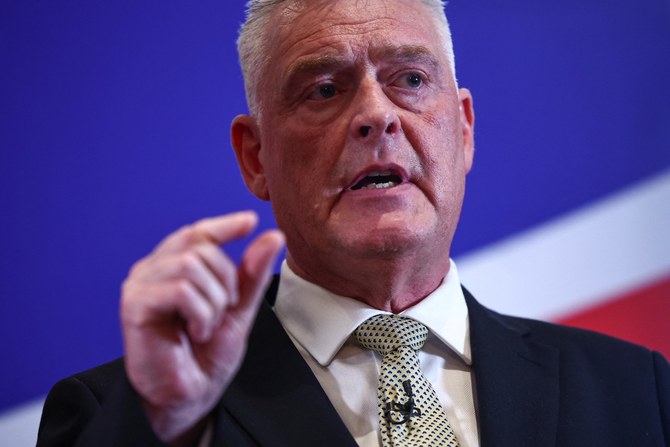
- The politician fails to acknowledge the patron saint of England’s connection to the Middle East in a video posted to celebrate St. George’s Day
LONDON: Reform UK MP Lee Anderson faced mockery after failing to acknowledge St. George’s historical ties to the Middle East in a recent social media post.
The former politician, who joined the far-right party after being suspended by the Conservatives for racist remarks about Mayor of London Sadiq Khan, shared a video on Tuesday commemorating St. George’s Day.
In it, Anderson proudly displayed red and white cufflinks matching the English flag. Also known as the St. George’s Cross, the symbol is historically associated with the Christian crusades.
“It’s St. George’s Day today and this country of ours has been a gift to the world,” Anderson said in the video.
In the accompanying caption, he wrote: “Trigger Warning. If you are a Guardian reading, advacado eating, Palestinian flag waving, Eddie Izzard supporting Vegan then this clip is probably not for your consumption.”
Anderson’s comments sparked amusement among users on X, where critics seized on his misspelling of “avocado” and highlighted the connection between Palestine and St. George, who is revered not only in England but also in parts of Africa, the Middle East, the Caucasus, and South America.
Comedian Shaparak Khorsandi quipped: “Who is going to tell him about St George’s connection to Palestine? (His mother was Palestinian, they too have a St. George’s day/feast. Though, to be fair, it is not known if he was related to Eddie Izzard),” referring to the actor/comedian.
Another user responded by sharing an image detailing facts about St. George, suggesting that if he were alive today, he would be considered an “immigrant” by Anderson’s standards, a group the Reform UK MP has repeatedly advocated should be deported.
Happy St George’s day. pic.twitter.com/Zq9cKGksOK
— GonePrivateIsh - still the same drivel (@Lairdysnr) April 23, 2024
Observed annually on the anniversary of St. George’s death with parades and marches, St. George’s Day was previously a national holiday and was once celebrated in England as widely as Christmas.
Born around AD 280 in what is now known as Cappadocia, Turkiye, St. George served as a soldier in the Roman army and fought in the crusade against Muslims. Beheaded in modern-day Palestine for refusing to renounce his Christian faith, St. George is revered by Christians, Druze and some Muslims as a martyr of monotheistic faith.
Renowned for his strength, courage and loyalty, St. George became a cherished figure in Europe and has been a symbol of English culture since the 14th century, despite never setting foot in the country.
Egypt reclaims 3,400-year-old stolen statue of King Ramses II

- Egyptian authorities spotted the artefact when it was offered for sale in an exhibition in London in 2013
CAIRO: Egypt welcomed home a 3,400-year-old statue depicting the head of King Ramses II after it was stolen and smuggled out of the country more than three decades ago, the country’s antiquities ministry said on Sunday.
The statue is now in the Egyptian Museum in Cairo but not on display. The artefact will be restored, the ministry said in a statement.
The statue was stolen from the Ramses II temple in the ancient city of Abydos in Southern Egypt more than three decades ago. The exact date is not known, but Shaaban Abdel Gawad, who heads Egypt’s antiquities repatriation department, said the piece is estimated to have been stolen in the late 1980s or early 1990s.
Egyptian authorities spotted the artefact when it was offered for sale in an exhibition in London in 2013. It moved to several other countries before reaching Switzerland, according to the antiquities ministry.
“This head is part of a group of statues depicting King Ramses II seated alongside a number of Egyptian deities,” Abdel Gawad said.
Ramses II is one of ancient Egypt’s most powerful pharaohs. Also known as Ramses the Great, he was the third pharaoh of the Nineteenth Dynasty of Egypt and ruled from 1279 to 1213 B.C.
Egypt collaborated with Swiss authorities to establish its rightful ownership. Switzerland handed over the statue to the Egyptian embassy in Bern last year, but it was only recently that Egypt brought the artefact home.






